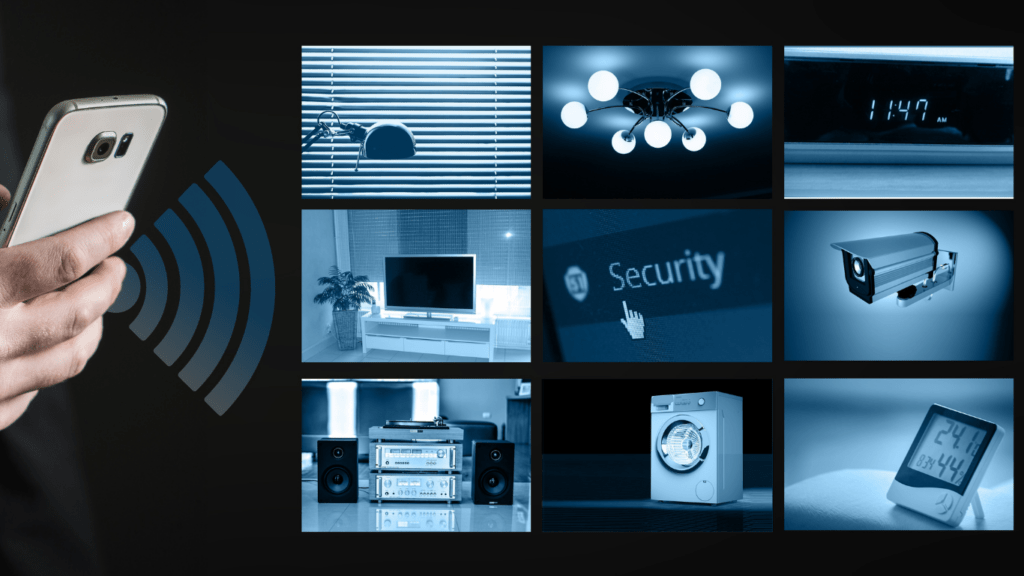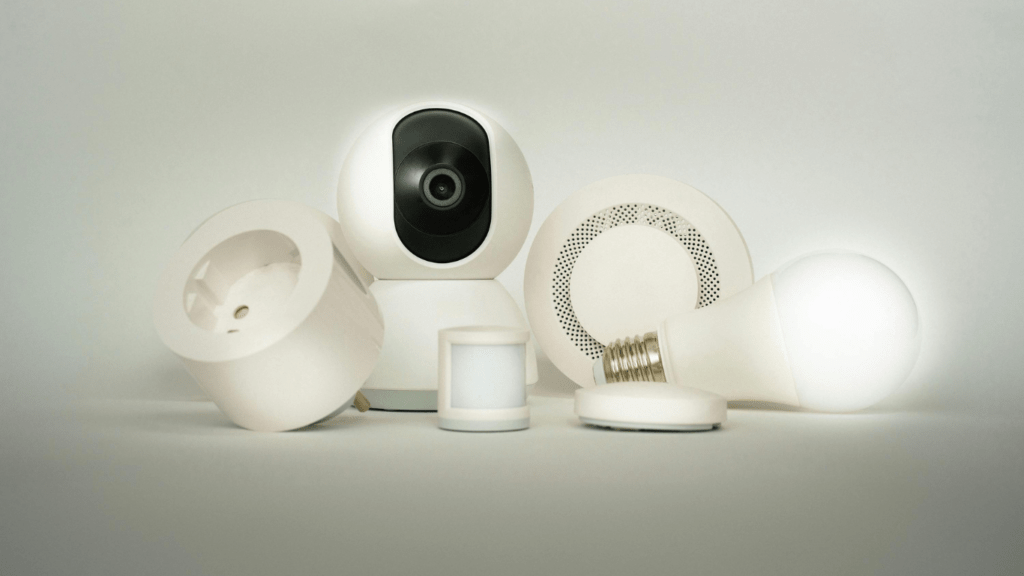Understanding Smart Home Technology
Smart home technology integrates advanced systems and devices to automate and enhance home management. New real estate developments increasingly incorporate these technologies to meet homebuyers’ expectations.
What Is Smart Home Technology?
Smart home technology uses internet-connected devices to enable remote management and monitoring of home systems. Examples include smart thermostats, lighting controls, surveillance cameras, and voice-activated assistants. These devices communicate through a central hub or smartphone app, providing seamless integration and control over household functions.
- Automation: Systems perform tasks without manual intervention. For instance, smart thermostats adjust temperatures based on user preferences and activity patterns.
- Remote Access: Users can control devices from anywhere via smartphones. Security systems can send alerts when suspicious activity is detected.
- Energy Efficiency: Smart devices optimize energy use, leading to cost savings. Smart lighting can dim or switch off when rooms are unoccupied.
- Enhanced Security: Surveillance cameras, smart locks, and motion detectors strengthen home security. Real-time video feeds and alerts ensure quick responses to potential threats.
- Interoperability: Devices communicate across platforms. For example, a smart speaker can interact with lights, locks, and thermostats from different manufacturers, ensuring a unified system.
The Integration of Smart Home Technology in Real Estate
Smart home technology is now a key component of modern real estate developments. Developers include such technology to attract tech-savvy buyers.
Trends in New Developments
Developers integrate various smart devices into new homes. These include smart thermostats, lighting systems, and security cameras. The National Association of Home Builders (NAHB) reported that 50% of new homes built in 2021 included smart technology. Smart home systems include voice-activated assistants like Amazon Alexa and Google Assistant. Homes also feature smart appliances, such as refrigerators and ovens, which enhance convenience and energy efficiency.
Benefits for Home Buyers
Smart home technology brings multiple benefits to home buyers. Automation simplifies home management and increases convenience. Remote access allows control of devices from anywhere using a smartphone. Energy efficiency lowers utility bills by optimizing energy use. Enhanced security features like smart locks and surveillance cameras provide peace of mind. Interoperability ensures devices work together seamlessly for a cohesive smart home experience.
Popular Smart Home Devices

Smart home technology has transformed modern real estate developments, offering convenience, security, and energy efficiency. Let’s explore some popular smart home devices.
Security Systems
Home security systems have seen significant advancements. Modern systems include smart cameras, doorbells, and locks. Smart cameras offer features like:
- motion detection
- night vision
- live streaming
Example brands include Arlo and Nest. Smart doorbells from Ring and Google Nest provide real-time notifications and video feeds. Smart locks, such as those from August and Schlage, allow remote locking and unlocking, enhancing security and convenience.
Smart Appliances
Smart appliances are becoming standard in new homes. These include refrigerators, ovens, and washing machines with internet connectivity. Smart refrigerators from brands like Samsung and LG can monitor food supplies and suggest recipes. Ovens from Whirlpool and Bosch offer remote operation and monitoring. Smart washing machines provide cycle notifications and maintenance alerts, from brands like GE and LG. These appliances improve home efficiency and convenience.
Energy Management Solutions
Energy management solutions help homeowners reduce energy consumption. Smart thermostats like Ecobee and Nest learn user preferences and schedule. They optimize heating and cooling, saving energy and costs. Smart lighting systems such as Philips Hue and LIFX offer remote operation and automation. Connected smart plugs and outlets from TP-Link and Belkin allow control over individual devices. These solutions enhance energy efficiency and provide cost savings.
Challenges and Considerations
While integrating smart home technology in new real estate developments offers numerous benefits, it also presents several challenges and considerations.
Privacy and Security Concerns
Data privacy and security issues are significant concerns with smart home technology. Devices like cameras, microphones, and sensors collect vast amounts of personal information. If developers don’t implement robust security measures, these devices can become targets for hackers. It’s crucial for developers to use end-to-end encryption, regularly update firmware, and educate homeowners about securing their networks to mitigate these risks.
Cost Implications
Initial costs for smart home technology installations can be substantial. High-quality smart devices and systems, like smart thermostats, lighting systems, and security cameras, require significant investment. Developers often need to balance the appeal of advanced technology with budget constraints. Additionally, maintenance and potential upgrades add to the long-term costs. It’s essential that developers consider long-term ROI and potential savings for homeowners when planning installations.
Compatibility Issues
Compatibility between different smart home devices can be problematic. Various brands develop products that may not seamlessly integrate with one another. For instance, a Nest thermostat may not fully communicate with a Philips Hue lighting system. Developers must ensure the chosen smart devices have a high level of interoperability. Using platforms that support multiple protocols, like Zigbee and Z-Wave, can help alleviate these issues and ensure a smoother integration process for homeowners.
Future Outlook
Smart home technology continues to advance rapidly, promising new innovations and possibilities in real estate. These developments aim to enhance the homeowner experience by increasing efficiency and convenience.
Emerging Technologies
Innovations in smart home technology include AI-driven automation, advanced energy management systems, and enhanced security solutions. AI-driven automation uses machine learning algorithms to adapt to user preferences, creating personalized home environments.
Advanced energy management systems, such as Tesla’s Powerwall, optimize energy consumption by integrating renewable sources like solar panels, reducing utility costs and carbon footprints. Enhanced security solutions deploy biometric authentication and AI-powered surveillance for improved safety.
Potential Impact on Real Estate Prices
Incorporating advanced smart home technology influences real estate values. Properties with cutting-edge systems often fetch higher prices due to the perceived value added by the technology, while homes lacking these features might see reduced demand.
According to a report by Coldwell Banker, homes with smart technology sold for 5-10% more compared to those without, reflecting buyer preference for modern conveniences. Builders and developers might need to weigh the initial investment in smart technology against potential price increases and market demand to make informed decisions.
Smart home technology’s role in new real estate developments underlines the industry’s shift towards future-ready living spaces. As technology evolves, its impact on real estate markets and homebuyer preferences will likely grow, making it a significant factor in property valuations and sales.


 Ron Wilson has played a vital role in the establishment of Villa Estates Luxe, bringing his expertise in property management and investment strategies to the project. His guidance has been invaluable in developing comprehensive buying guides that empower potential villa owners to make informed decisions in a competitive market. Ron's in-depth knowledge of market dynamics has informed the platform's analysis and reporting, allowing users to navigate complex real estate trends with confidence. His commitment to excellence and dedication to educating clients have not only enhanced the platform’s credibility but have also established Villa Estates Luxe as a go-to source for industry insights and investment strategies in the luxury villa sector.
Ron Wilson has played a vital role in the establishment of Villa Estates Luxe, bringing his expertise in property management and investment strategies to the project. His guidance has been invaluable in developing comprehensive buying guides that empower potential villa owners to make informed decisions in a competitive market. Ron's in-depth knowledge of market dynamics has informed the platform's analysis and reporting, allowing users to navigate complex real estate trends with confidence. His commitment to excellence and dedication to educating clients have not only enhanced the platform’s credibility but have also established Villa Estates Luxe as a go-to source for industry insights and investment strategies in the luxury villa sector.